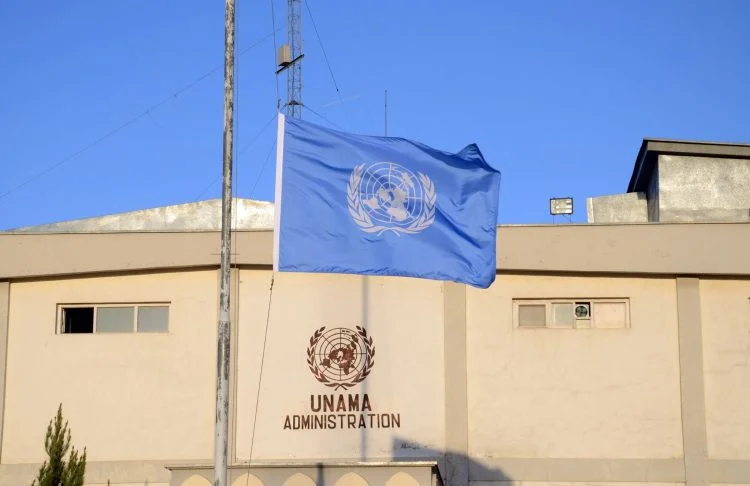The United States is drawing up a plan to potentially give Russia sanctions relief as President Donald Trump seeks to restore ties with Moscow and stop the war in Ukraine, a U.S. official and another person familiar with the matter told Reuters.
The White House has asked the State and Treasury departments to draft a list of sanctions that could be eased for U.S. officials to discuss with Russian representatives in the coming days as part of the administration’s broad talks with Moscow on improving diplomatic and economic relations, the sources said.
The sanctions offices are now drawing up a proposal for lifting sanctions on select entities and individuals, including some Russian oligarchs, according to the sources.
So-called options papers are often drafted by officials working on sanctions, but the White House’s specific request for one in recent days underscores Trump and his advisers’ willingness to ease Russian sanctions as part of a potential deal with Moscow.
It was not immediately clear what the Trump administration in Washington could specifically seek in return for any sanctions relief for Russia.
Russia is one of the world’s biggest oil producers and if U.S. sanctions on its energy system were eased, it could help prevent fuel prices from rising if Trump cracks down on oil exports from OPEC-member Iran.
The White House, the State Department, the Treasury Department and the Russian embassy in Washington did not immediately respond to a request for comment.
The Kremlin last year described relations as “below zero” under the administration of Joe Biden, a Democrat who backed Ukraine with aid and weapons and imposed tough sanctions on Russia to punish it for its invasion in 2022.
But Trump, who has promised a quick end to the war, has upended U.S. policy swiftly to open talks with Moscow, beginning with a phone call to Russian President Vladimir Putin on Feb. 12 that was followed by meetings between U.S. and Russian officials in Saudi Arabia and Turkey.
U.S. sanctions on Russia since the 2022 invasion of Ukraine have included measures aimed at limiting revenues from the country’s huge oil and gas industry and weakening its ability to fund the war.
Western governments led by Washington imposed a $60-per-barrel price cap on Russia’s oil exports. Biden also hit Moscow with designations on Russian energy companies and vessels that shipped its oil, including Washington’s toughest-yet measures on Jan. 10 shortly before leaving office.
Trump in January threatened to ramp up sanctions on Russia if Putin was unwilling to negotiate an end to the war in Ukraine. But more recently, Trump administration officials have openly acknowledged the possibility of easing sanctions on Moscow.
Treasury Secretary Scott Bessent said during a Feb. 20 interview with Bloomberg Television that Russia could win economic relief, depending on how it approached negotiations in the coming weeks. Trump told reporters on Feb. 26 that Russian sanctions could be eased “at some point.”
Also See: France, UK Push for Ukraine Truce as Europe Seeks U.S. Support
ECONOMIC COOPERATION
The White House asked State and Treasury officials to devise a possible sanctions relief plan before Trump last week extended a state of emergency over the situation in Ukraine, the U.S. sources said.
The state of emergency sanctions certain assets and people involved in Russia’s war. Those measures, imposed by then-President Barack Obama’s administration, have been in place since March 2014, when Russia annexed Ukraine’s Crimea.
It is unclear which Russian sanctions the Trump administration would consider lifting first.
Trump could issue an executive order that would allow the administration to begin the process of easing some Russian sanctions, but he would also need to seek congressional approval to lift measures on certain entities, said John Smith, a partner at Morrison Foerster law firm and the former head of the Treasury Department’s Office of Foreign Assets Control.
Since 2022, Russia has been able to build a wartime economy with increased military spending and industrial production. But experts say the country’s economy is vulnerable and in desperate need of Western sanctions relief.
Russia says it is open for economic cooperation. The Kremlin said last week that Russia had lots of rare earth metal deposits and was open to doing deals to develop them after Putin held out the possibility of such collaboration with the U.S.
Any formal economic deal with Moscow would likely require the U.S. to ease sanctions.
Trump has been seeking a minerals deal with Ukraine – home to a trove of lithium deposits and rare earth minerals – as pay back for billions of dollars in U.S. aid. However, no deal was signed after an explosive Oval Office meeting between Trump and Ukraine’s President Volodymyr Zelenskiy on Friday.
This news is sourced from Reuters and is intended for informational purposes only.

![Trump weighs Russia sanctions relief to restore ties, end Ukraine war, and explore economic cooperation with Moscow. [Image via Reuters]](https://southasiatimes.org/wp-content/uploads/2025/03/FWLGRYMR6VKLLDYPPSX6ERNYRI.webp)




